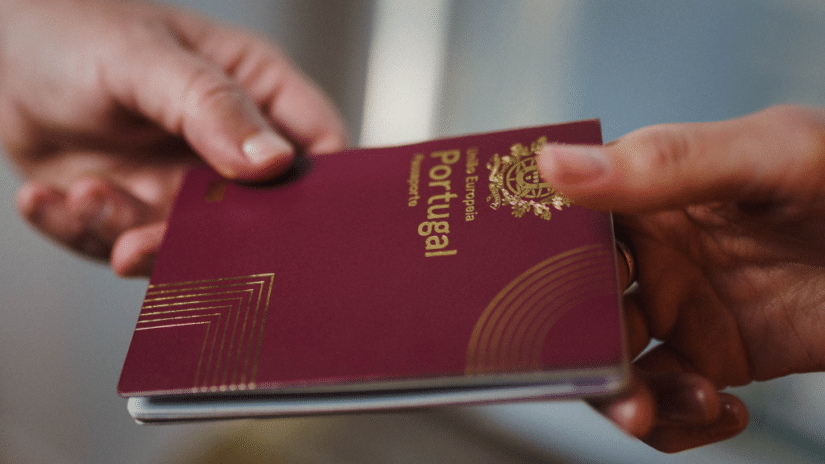As some of you may already know, the NHR status in Portugal allows an individual to have tax benefits.
But most of you may not be clear about the specific rules and regulations related to obtaining this status.
To steer clear of such doubts, I am going to explain the taxes, rules, and regulations of this NHR status in Portugal.
I will also focus on the residency requirements such as whether or not you have to live in Portugal.
So, stay till the end of this article to have a better understanding of all the information related to the NHR in Portugal.
If you want to invest as an expat or high-net-worth individual, which is what I specialize in, you can email me (advice@adamfayed.com) or use WhatsApp (+44-7393-450-837).
What is NHR?

The non-habitual resident (NHR) status is a tax system established by the Portuguese Government in 2009 to attract foreigners.
This includes skilled individuals, retirees, etc., who wish to reside in Portugal.
It offers an appealing tax incentive, with the option of a 20% tax rate or complete exemption from income taxation for 10 years.
It is important to understand that this tax scheme is not exclusive to retirees.
it is available to both active and retired individuals who meet specific criteria.
Over 23,000 individuals have already benefited from this tax regime, highlighting its popularity among expatriates.
To qualify for the non-habitual resident NHR status in Portugal, certain conditions, such as becoming a resident, must be fulfilled.
Once granted, this special tax status provides reduced tax rates or exemptions.
This is to encourage skilled individuals to contribute their expertise and talents to the country while enjoying favorable tax treatment.
The primary distinction between Non-Habitual Resident (NHR) status and regular resident status in Portugal lies in the tax advantages and treatment they offer to individuals.
Tax Advantages
NHR status provides special tax incentives for certain foreign individuals, including retirees and skilled employees.
It allows for a reduced tax rate of 20% or even a complete tax exemption on certain types of income.
This favorable tax treatment is available for a continuous period of 10 years.
Regular resident status in Portugal follows the standard tax regime applicable to all residents in the country.
While Portugal offers a relatively competitive tax system for residents, it does not provide the same specific tax benefits as NHR status.
Target Audience

NHR status is specifically designed to attract foreigners with high value-added potential, such as:
— Skilled professionals
— Entrepreneurs
— Retirees
It aims to encourage these individuals to contribute to the country’s economy and bring their expertise.
Regular resident status applies to all individuals who meet the criteria for being considered tax residents in Portugal.
Resident status is irrespective of the individual’s nationality or occupation.
Duration
NHR status is granted for a fixed period of 10 years.
During this time, the individual can benefit from the favorable tax treatment.
Regular resident status is granted indefinitely as long as the individual meets the criteria for tax residency in Portugal.
It does not have a specific time limitation like NHR status.
It’s important to note that individuals must meet specific conditions to qualify for NHR status.
The tax benefits vary depending on the individual’s source of income.
Before applying for any tax status in Portugal, it is advisable to seek professional advice to understand the implications and benefits fully.
Eligibility

The Non-Habitual Resident (NHR) program is available to those who become residents in Portugal and meet specific criteria.
The main requirements include becoming a tax resident and not being taxed in Portugal during the five years before applying for NHR.
Demonstrating compliance with these conditions can be challenging.
To qualify as a tax resident in Portugal, an individual must meet one of the following criteria:
— Reside in Portugal for more than 183 days (consecutively or not) during a 12-month period starting or ending in the year of NHR application.
— Live in Portugal for less than 183 days but own a real estate property under conditions that indicate the intention to use it as their primary and usual residence.
— Be part of the crew of a ship or aircraft on December 31st.
— Hold public functions or duties abroad in service of the Portuguese State.
Once eligible for NHR status, a complete application must be submitted by March 31st of the year following registration as a resident.
Meeting this deadline is crucial to avoid potential denials due to poorly prepared last-minute applications.
The NHR tax regime in Portugal is granted for a fixed 10-year period and cannot be renewed.
It is essential for the beneficiary to maintain tax residency in Portugal throughout each of these 10 years.
If the individual is not recognized as a tax resident in Portugal for a specific year during the 10-year period, the NHR status is not lost.
They can still benefit from the NHR plan during any of the remaining years within the 10-year period, but only from the year, they become a tax resident again in Portugal.
It is important to note that years cannot be postponed to a later date.
Deadline for Applications:
The deadline for applying for NHR status in Portugal is typically March 31st.
Individuals who meet the necessary requirements must submit a complete application by this date in the year following their registration as a resident.
It is crucial to be mindful of this deadline, as applications submitted after this cutoff are often denied.
Applications submitted after the deadline would be considered poorly prepared or last-minute submissions.
Application Procedure (without staying in the country)
Applying for Non-Habitual Resident (NHR) status in Portugal without physically staying in the country can be a complex process.
Yes, it can be harder than usual, but it is possible with careful planning and assistance.
Here are some tips to help you with the application:
- Seek Professional Help
Due to the intricacies of the NHR application process, it’s highly recommended to seek professional expertise.
You can get help from tax and immigration experts who are familiar with Portuguese regulations and can guide you through the process.
- Gather Necessary Documentation
Ensure you have all the required documents for the application as per the NHR requirements.
These could include proof of income, tax residency history, and any other supporting documents.
- Appoint a Fiscal Representative
Portugal requires NHR applicants who don’t reside in the country to appoint a fiscal representative.
This representative will act as your liaison with the Portuguese tax authorities.
At the same time, they will assist with any administrative tasks related to your application.
- Apply within the Timelines
Submit your NHR application in a timely manner, adhering to the deadlines set by the Portuguese tax authorities.
Missing deadlines can lead to delays or denials, mostly denials with the reason saying improper preparation or last-minute submission.
- Maintain the accuracy and completely fill in the details
Ensure your application is complete, accurate, and well-prepared (without any errors).
Any inaccuracies or omissions may result in delays or rejection.
- Translation Services
If your documents are not in Portuguese, you may need to have them translated by a certified translator to meet the language requirements.
- Tax Laws
Be aware of any changes in Portuguese tax laws and regulations that may affect your NHR application or tax status.
- Maintain Communication
Stay in touch with your fiscal representative and keep them informed about any changes in your circumstances (if any).
- Follow Up
After submitting your application, regularly follow up with the tax authorities or your fiscal representative.
This is helpful to check the progress and address any queries or additional requirements.
- Be Patient
The NHR application process can take time, especially when applying from abroad. Be patient and allow for sufficient processing time to receive the NHR status.
Remember, each individual’s situation is unique, and applying for NHR status remotely can have its challenges.
Seeking professional advice and support can significantly increase your chances of a successful application.
Do I have to live in Portugal for NHR status?

Yes and no.
This is kind of a tricky question and let me explain it in a clear way so that you can understand better.
The requirement is to satisfy any of the following conditions mentioned below. Only then, you would be treated as a tax resident.
— Reside in Portugal for more than 183 days (consecutively or not) during a 12-month period starting or ending in the year of NHR application.
— Live in Portugal for less than 183 days but own a real estate property under conditions that indicate the intention to use it as their primary and usual residence.
— Be part of the crew of a ship or aircraft on December 31st.
— Hold public functions or duties abroad in service of the Portuguese State.
First condition
The first condition is to reside in the country for approximately six months in order to be treated as a tax resident.
Living for at least 6 months would be understandable as you are applying for tax benefits.
This would imply you are receiving some type of income from the country, which would require you to stay in the country.
Second condition
Nonetheless, the second condition would imply that you can just stay for less than six months and still become eligible.
The only important aspect to be considered over here is that you must own a real estate property.
It doesn’t just end there because you’ll still have to use that property as your primary residence.
If you are a wealthy individual and don’t have to worry about the staying requirement because you can go ahead with this method.
Still, it is also a meaningful one as you are about to live in the country for around 10 years. This means having a property over there can be useful for you when you frequently visit the country.
Third condition
Here’s where it gets somewhat difficult because not everyone could go ahead and become a part of the crew in a ship or aircraft.
This might ask for a specific set of educational/professional qualifications.
Therefore, it may be hard unless you already have a plan on how to do this.
Fourth condition
The fourth condition is that you must hold public functions or duties abroad in service of the Portuguese State.
This means that you should be engaged in official government or public service roles outside of Portugal on behalf of the Portuguese government.
This could include:
- Individuals working in diplomatic or consular positions
- Representatives of Portuguese governmental organizations
- Other public servants serving in international capacities
In the context of the NHR status in Portugal, if an individual meets this condition, they may be eligible for the NHR status.
This is even without needing to fulfill the typical residency requirements in Portugal.
This means they may be granted the NHR status even if they spend less than 183 days in Portugal during a 12-month period.
What do I suggest?
If you ask me, the best possible ways to meet the tax residency requirements are through the second and fourth conditions.
That is only if you are not okay with living in the country for a period of at least 6 months per year.
The best possible way is through the second condition with the combination of a golden visa.
Golden Visa

Yes, it is possible to obtain Non-Habitual Resident (NHR) status in Portugal after acquiring a Golden Visa.
The Golden Visa is a residency program that allows non-EU/EEA citizens and their families to obtain residency in Portugal.
This is obtained by making qualifying investments, such as buying real estate or creating jobs in the country.
While applying for the NHR, you must be considered a tax resident, and for that reason, you should go ahead with the buying real estate option.
Yes, you can sell the real estate property before the end of your Non-Habitual Resident (NHR) status in Portugal.
This can be done while you get to potentially save on taxes.
As an NHR beneficiary, you may be eligible for favorable tax treatment on capital gains derived from the sale of certain assets like real estate.
Under the NHR regime, capital gains from the sale of Portuguese real estate may be exempt from Portuguese income tax.
However, to qualify for this exemption, the following conditions must be met:
— The property being sold must be considered a “permanent residence” for tax purposes, which means it has been used as your primary and usual residence.
— The sale must occur within the first three years of becoming a tax resident in Portugal under the NHR status.
If these conditions are met, the capital gains from selling the real estate property may be tax-exempt in Portugal resulting in tax savings.
It’s important to note that tax laws can be complex and subject to change.
Therefore, it is crucial to seek professional advice from a qualified tax advisor or lawyer before making any decisions.
Especially, regarding the sale of real estate or other financial matters related to your NHR status in Portugal.
They can provide personalized guidance based on your specific situation and help you navigate the tax implications effectively.
Once you have obtained a Golden Visa and become a resident in Portugal, you can subsequently apply for NHR status.
This is only if you meet the specific criteria for the NHR program.
The NHR program offers favorable tax benefits for a period of 10 consecutive years, as long as you meet the requirements.
Taxes for NHR status in Portugal
The Non-Habitual Resident (NHR) status in Portugal offers attractive tax benefits to qualifying individuals.
Here are the main tax benefits associated with the NHR status:
- Tax Exemption on Foreign Source Income
Most foreign-source income is exempt from Portuguese income tax for a period of 10 consecutive years.
This includes income such as pensions, rental income, capital gains, dividends, and interest earned outside Portugal.
Important – The government of Portugal made a tax decision regarding the foreign pension income on 30/01/2020.
According to this, all the foreign pension income will be taxed at a rate of 10% starting from 31/03/2020 for the new NHR beneficiaries.
- Reduced Tax Rate on Certain Income
For income earned in Portugal from high-value-added activities (Category A) and self-employment income from high-value-added activities (Category B), there is a flat tax rate of 20% applicable to the net income earned.
This reduced tax rate applies to specific professions listed under the NHR scheme.
- Favorable Tax Treatment on Capital Gains
Capital gains are derived from the sale of certain assets, such as real estate or stocks.
The capital gains may be exempt from Portuguese income tax under the NHR program.
- Tax Exemption on Inheritance and Gift Tax
Inheritance and gift taxes on assets located outside Portugal are exempt for NHR beneficiaries.
It’s important to note that the NHR status offers favorable tax benefits on foreign-source income and certain types of income earned in Portugal.
It does not provide complete tax exemption on all income.
For example, income earned in Portugal does not fall under the specified high-value-added activities.
Therefore, it is subject to the standard Portuguese tax rates.
Other Tax Benefits
If you don’t qualify for non-habitual residence in Portugal or if your NHR status has expired, there are still appealing and tax-efficient options open to you.
Through effective financial planning and seeking expert guidance, you can take advantage of highly advantageous tax benefits.
In Portugal, inheritance tax (stamp duty) is limited, with a modest rate of only 10%.
Furthermore, it is applicable solely to assets within Portugal, and spouses and children are exempt from this tax.
Portugal does have a form of wealth tax, but it solely applies to property, and the rates are relatively low.
This tax will only affect individuals who own Portuguese property valued above €600,000 (€1.2 million for couples).
The most suitable course of action will depend on your individual circumstances and financial goals.
To ensure you make well-informed decisions and capitalize on the right opportunities in Portugal, it is crucial to seek personalized advice from a reputable cross-border specialist.
Things to do before and after the NHR status

There are some things that you should pay attention to before and after the NHR status.
Things to remember before applying for the NHR status:
Ensure that you meet all the criteria for Non-Habitual Resident (NHR) status in Portugal.
This includes tax residency, not being taxed in Portugal for the last five years, and belonging to eligible professions.
Consider your financial situation and objectives carefully before applying.
Evaluate how NHR status will impact your overall tax position and seek professional advice to optimize your tax planning.
Collect all the necessary documents required for the NHR application, such as:
— Proof of income
— Residency history
— Other supporting paperwork.
Seek guidance from tax and immigration experts who are well-versed in Portuguese regulations and NHR application procedures.
If you are applying from abroad, appoint a fiscal representative in Portugal.
They will assist you with administrative tasks and communicate with the tax authorities on your behalf.
Submit your NHR application within the specified deadlines to avoid any delays or potential denials.
If your documents are not in Portuguese, arrange for certified translations to meet language requirements.
Stay informed about changes in Portuguese tax laws and regulations that may impact your NHR application or status.
Consider the tax treaties between Portugal and your home country to understand how they may affect your tax liabilities.
The NHR application process can be intricate and time-consuming.
Be patient and persistent, following up on the progress of your application when necessary.
Things to remember after getting the NHR status:
Get yourself familiar with the tax obligations and compliance requirements for NHR status holders in Portugal.
Continue to pay attention to and optimize your tax planning to ensure you are taking full advantage of the benefits. In simple words, make the most of your NHR status.
Comply with Portuguese tax reporting requirements to avoid any penalties or issues with tax authorities.
Stay in contact with your fiscal representative to address any tax-related matters.
Always keep your representatives informed of changes in your circumstances.
Be aware that NHR status is granted for ten years, which is non-renewable.
Once your status ends, seek professional advice on how to manage your tax situation in the future.
Explore tax-efficient investment options in Portugal, so that you can benefit from the favorable tax treatment for capital investments.
Always try to know about any updates or changes to Portuguese tax laws that may impact your NHR status or tax liabilities.
Opt for estate planning measures, such as drafting a will, to ensure a smooth transfer of assets in the future.
If your circumstances change, or you have additional questions regarding NHR status, consult tax experts.
Finally, enjoy the benefits of living in Portugal and the tax advantages offered by NHR status.
Bottom Line
Getting the NHR status can take a lot of time and effort, especially if you are not familiar with the process.
I strongly hope that the information provided in this article was helpful to you.
That being said, if you need any assistance regarding the Portugal Golden Visa or your specific wealth management needs, I’m happy to help.
I have helped several expat clients with their investment needs and helped them achieve financial freedom.
Feel free to reach out to me to find out whether you can benefit from the top-notch services that I have to offer.
Pained by financial indecision? Want to invest with Adam?

Adam is an internationally recognised author on financial matters with over 830million answer views on Quora, a widely sold book on Amazon, and a contributor on Forbes.



